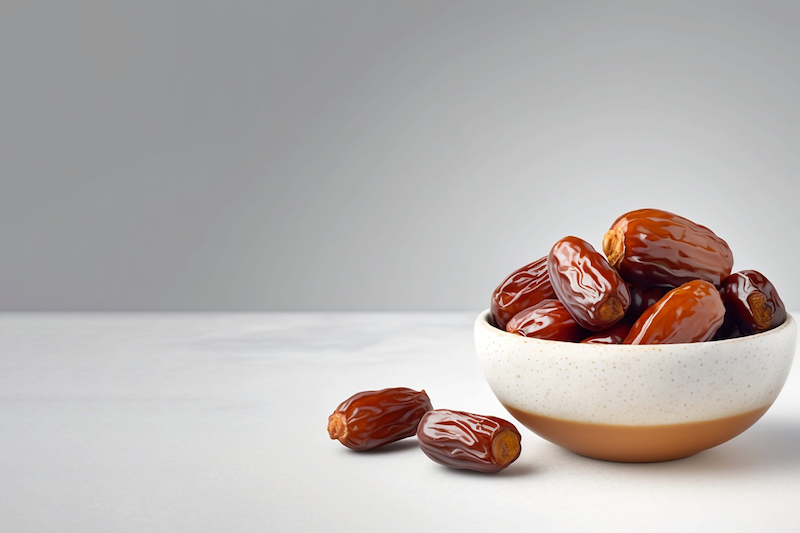I am currently in my third trimester, and everyone has given me advice on what will help me with labor, from raspberry leaf tea to bouncing on a ball to eating dates. The last one really intrigued me. Does eating dates make you go into labor? What’s so special about dates, and when should I start eating them to help with labor?
—Callie
There are various theories you’ll see thrown around — something about hormones, or vitamins — but the answer to “why dates?” really lies in a few papers that argued that, for whatever reason, dates seemed to prompt labor. Perhaps the best-known is a 2011 paper that compared 69 women who consumed six dates a day for four weeks with 45 women who did not. The study wasn’t randomized, but the authors did find that a much larger share of the women who ate dates went into labor spontaneously (96% versus 79%) and that their labor was less likely to need augmentation.

The conclusion of the paper was that the finding warranted a randomized controlled trial. And following that, there were a number of them. This study randomized 77 women into a seven-date-a-day group and 77 others into a control group. It found that the date group did have less need for labor augmentation but were no more likely to go into labor spontaneously. A second paper with a similar-size trial found that date consumption led to shorter labor. A third randomized trial showed that the date consumption group had more “cervical reopening” (i.e. more movement toward progress in labor) than the no-date group.
A 2024 meta-analysis pulled many papers together and suggested that dates might shorten labor and decrease the need for interventions. However, that paper notes that the quality of most of the trials is — the authors’ word — “unacceptable.” The risk of bias is high, and the studies are small.
What to take from this? I would say, good news and bad news for the date-labor plan. On the minus side, if you are past your due date and your hope is to down a giant pile of dates to encourage labor, that is not likely to work. (Also, eating that much dried fruit all at once is a mistake for other reasons.) On the plus side, this actually does suggest that eating a smaller number of dates regularly over the last weeks of pregnancy might make labor slightly smoother. The effects aren’t huge, but they seem consistent. Perhaps worth a try.
Community Guidelines



















Log in
My third trimester daily smoothie is three dates, a banana, a big spoonful of peanut butter, some cinnamon, and then some kefir. I eat it because (1) it’s delicious (2) all the fiber and probiotics for that slow 3rd trimester gut and (3) might as well try the date thing on the off chance it works.
My cheap blender won’t blend dates 🤷🏼♀️